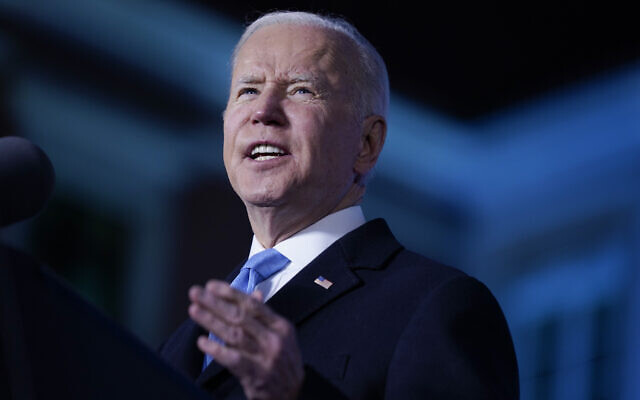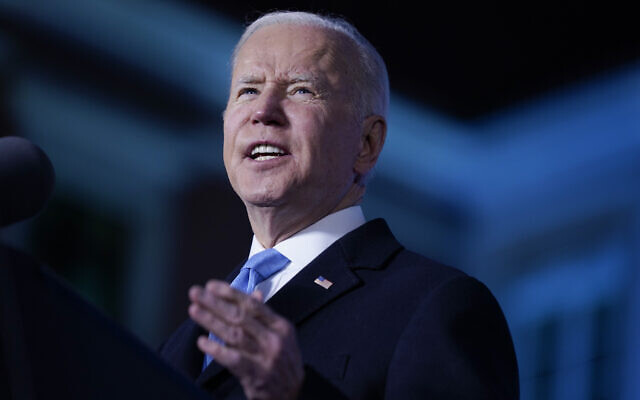
Israel satisfied as US seems likely to keep Iran’s Guards on terror blacklist
Israel hopes the Biden administration’s reported decision to not remove the Iranian Revolutionary Guard Corps from the US terror blacklist could be a “dealbreaker” for Iran in talks on reviving the 2015 nuclear deal, a senior official in the Prime Minister’s Office said Saturday.
The official told The Times of Israel that the PMO welcomed the move, reported by The Washington Post, but understood it may not ultimately prevent an agreement between Iran and the United States, with Tehran still poised to benefit economically if that happens.
The Post’s David Ignatius was told by an unnamed senior US official that the administration would not agree to Iran’s demand to remove the IRGC from the list of Foreign Terrorist Organizations (FTO), even if it put the signing of a deal “in jeopardy.”
The Pentagon’s top general said Thursday he was opposed to the potential delisting of the IRGC’s Quds Force, and a State Department spokeswoman later said the president shared Mark Milley’s views.
The issue had been one of the few related to the nuclear negotiations that Prime Minister Naftali Bennett and Foreign Minister Yair Lapid had forcefully spoken out against in public, as they have sought to quietly influence Washington on the negotiations, rather than spar with the US publicly.
Ynet quoted a senior Israeli official asserting that the government’s approach had proven itself: “The policy Israel has enacted, led by Prime Minister Bennett and Foreign Minister Lapid, not to get into clashes for the sake of clashes but influencing where possible, is a good and correct approach.”

US President Joe Biden delivers a speech about the Russian invasion of Ukraine, at the Royal Castle, on March 26, 2022, in Warsaw. (AP Photo/Evan Vucci)
The US official’s comments on the IRGC followed a trip this week to Washington by Bennett’s senior foreign policy adviser, Shimrit Meir, who lobbied administration officials against dropping the terror designation.
The Washington Post highlighted comments this week by US Secretary of State Antony Blinken, who reaffirmed his belief that the IRGC was a terror group and said that he was “not overly optimistic” that a nuclear deal would be signed. Blinken gave a circumspect answer when asked if he thought the IRGC was a terror organization during a recent press conference with Bennett in Jerusalem.
The report also noted that Washington is not walking away from negotiations, and that there was hope a compromise could still be found to allow the agreement to be signed.
The IRGC, a hardline militia with close ties to Iran’s supreme leader, was designated a Foreign Terrorist Organization by former US president Donald Trump’s administration after it withdrew in 2018 from the nuclear agreement officially known as the Joint Comprehensive Plan of Action.
Officially, the Guards are on the list because of Iran’s action supporting the Syrian government, Yemen’s Houthi rebels, and the Lebanese terror group Hezbollah.
Milley said Thursday he was opposed to the potential delisting of the IRGC Quds Force. It was not immediately clear why Milley referred only to the Quds Force, when the delisting of the entire IRGC had reportedly been under consideration by Washington as part of a potential revival of its nuclear deal with Iran.
The so-called Joint Comprehensive Plan of Action gave Iran relief from heavy sanctions in return for curbs on its nuclear program to prevent it from obtaining atomic weapons, a goal Tehran denies it seeks. In 2018, the Trump administration pulled the US out of the deal and reimposed sanctions. Iran has responded by dropping many of its commitments and ramping up enrichment and other elements of the program.
European-sponsored talks in Vienna are aiming to bring the US back into the deal and see Iran recommit to its terms in return for lifted sanctions.
